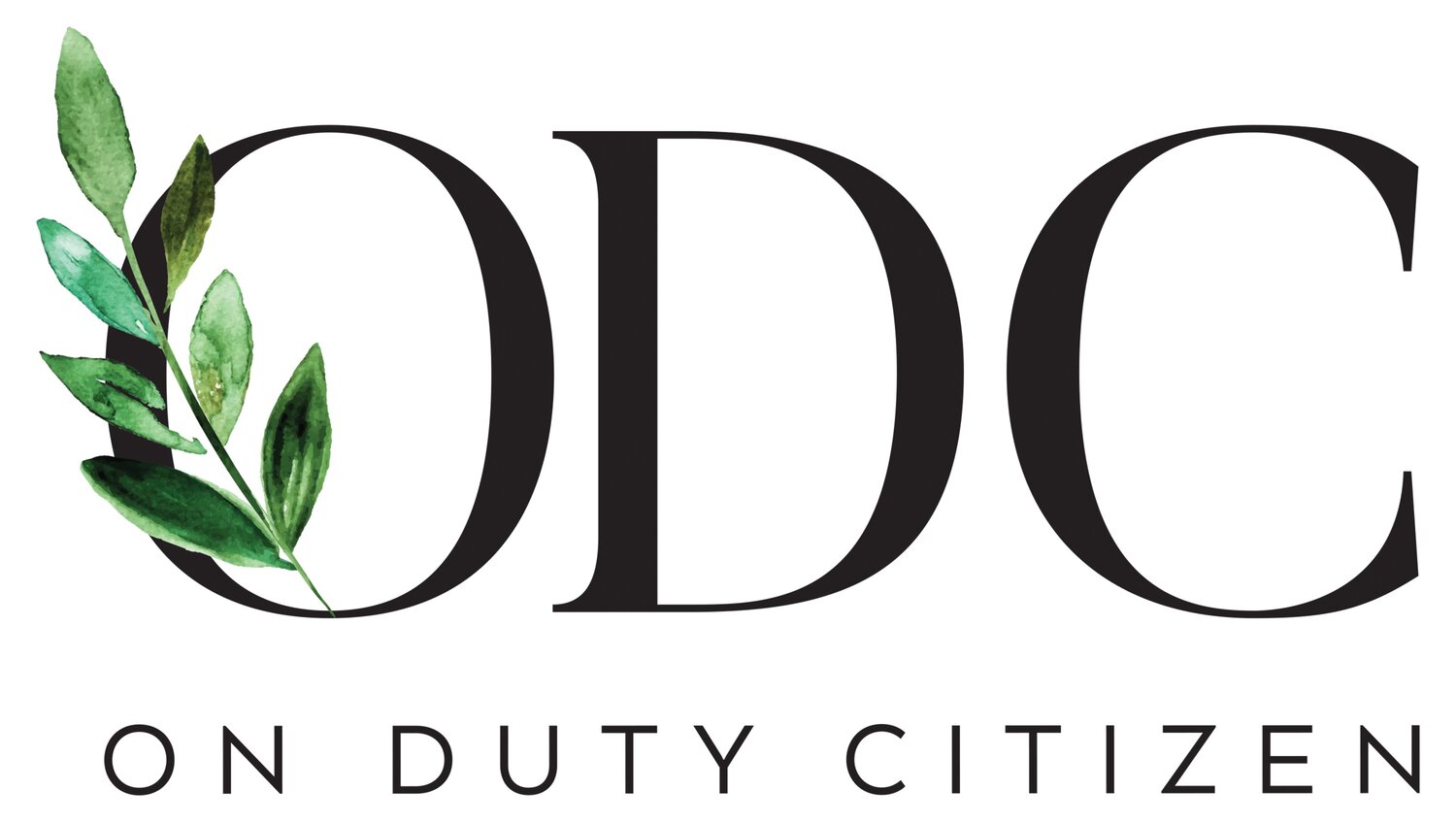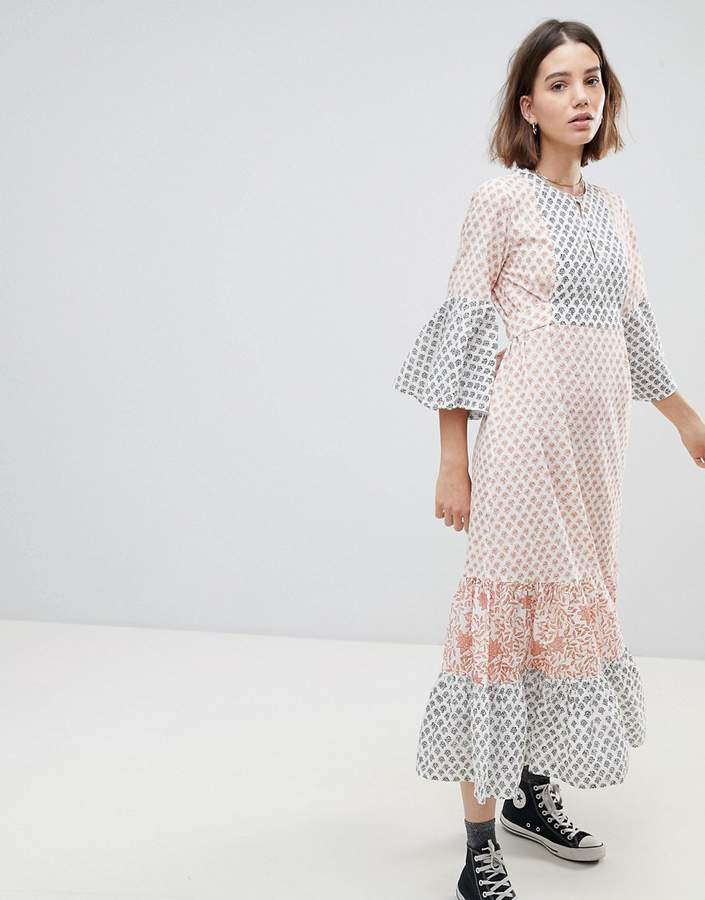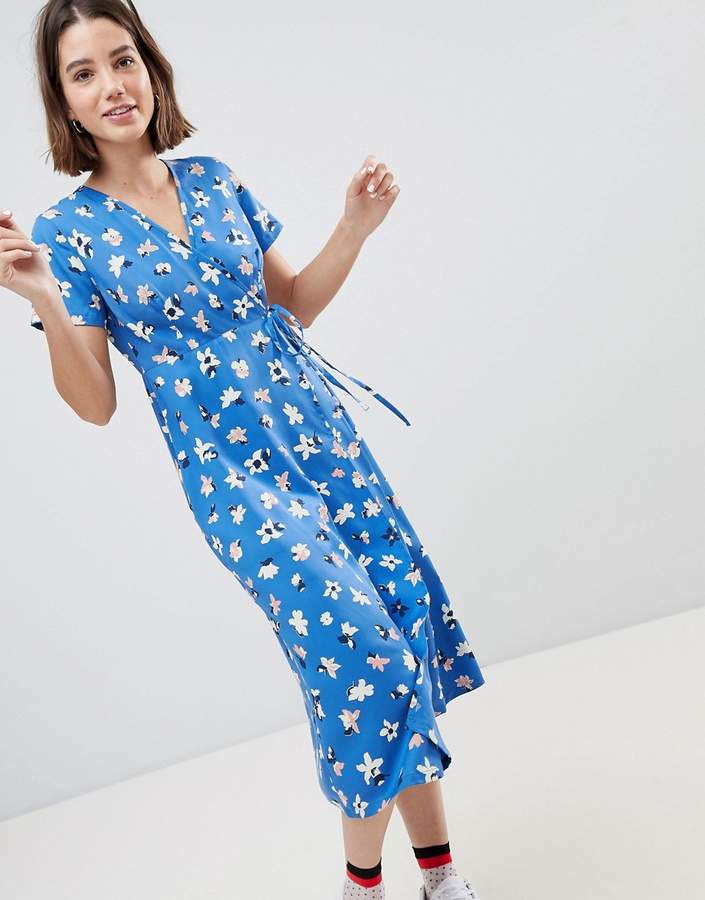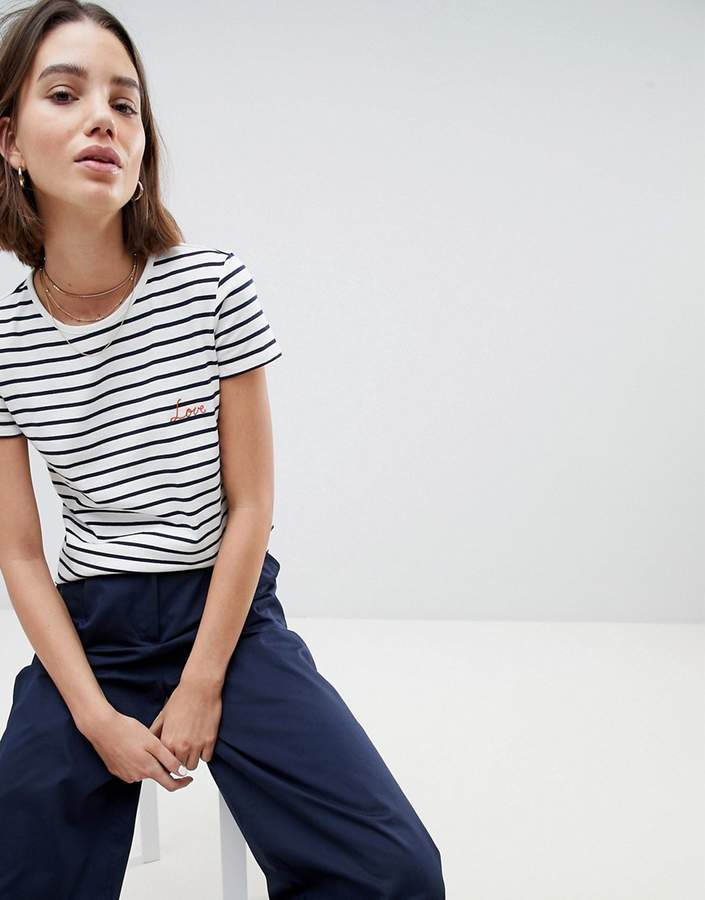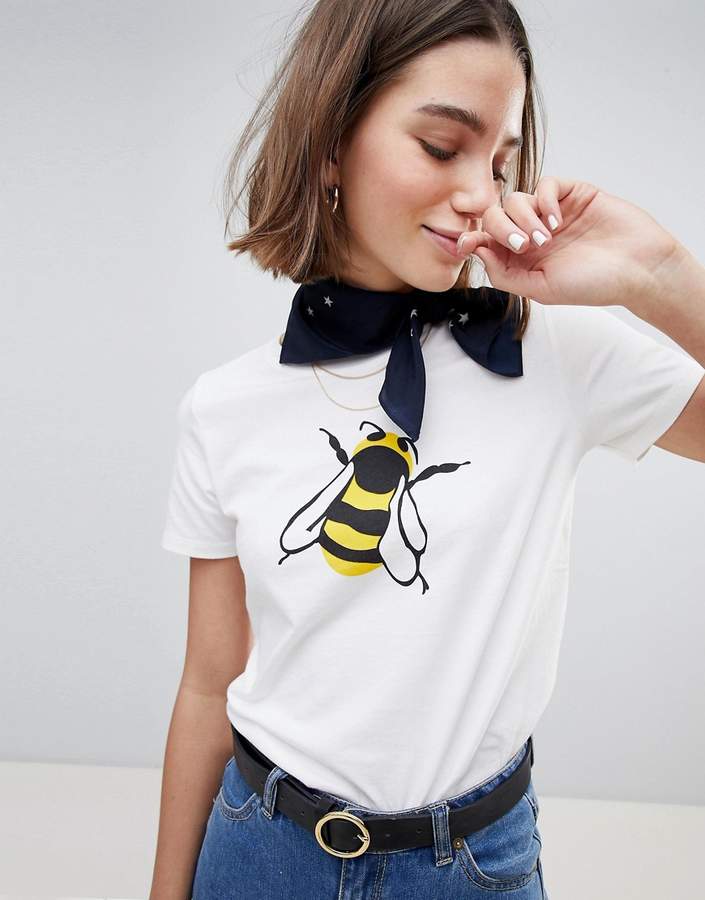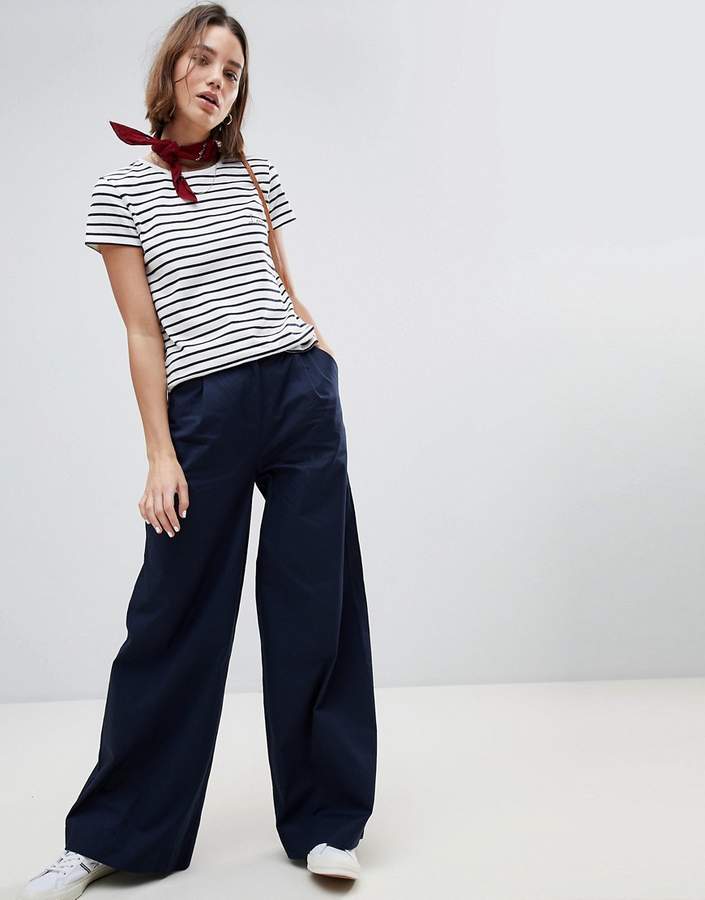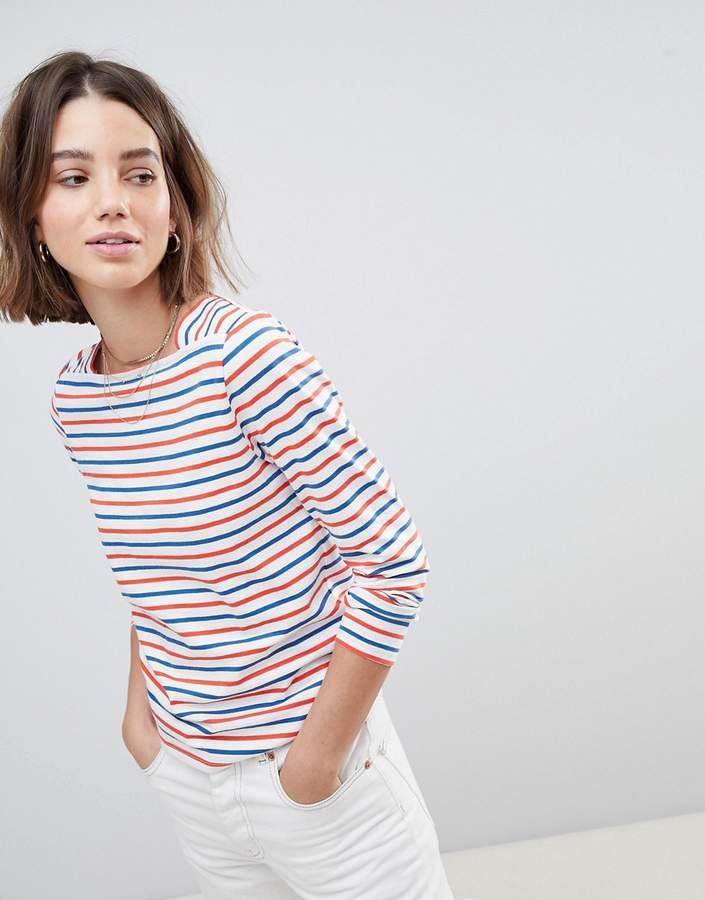People Tree is a leader in ethical and sustainable fashion. With credentials running from WTFO accreditation to the Fair Trade Foundation and using GOTS certified cotton, People Tree goes above and beyond to ensure their customer is getting something of quality that isn't at the cost of our environment or the people who make each garment. With the upcoming Fashion Revolution Week and Earth Day nearby, I decided to interview Katy Hughes, account director of People Tree to hear her intake on the future of sustainable fashion and how People Tree ensures they're production process is ethical and sustainable.
1) For someone new to the sustainable world, what are some key small steps they can look out for when shopping to ensure they’re investing in a good company?
If you want to shop more consciously, it comes down to paying attention to sustainable and ethical aspects, buying fashion which is better for the environment but also ensuring good and safe working conditions for the people behind it. Being mindful to either of this is already a great step in the right direction. To make sure you’re investing in a company which is actually following these ethics, have a look out for credentials. Certifications like Fairtrade and GOTS are awarded by independent organizations and their strict standards are reviewed regularly. While many fashion brands talk about ethical fashion, these credentials mean you can actually trust how the products are made and ensures you’re investing in a good company. This is a huge support for consumers trying to find orientation in the ethical fashion world. It might also be helpful to read some blogs from independent experts in this area for some advice and guidelines. Apart from that, always keep in mind that doing something is better than doing nothing and every little step contributes to a big change.
2) People Tree is Certified in many ways from GOTS to SOIL and WFTO to ensure proper sustainable and ethical measures are taken when going into production, which is fabulous! What are the steps to certification and how easy would it be for a smaller company like ODC to get certified?
To be Fairtrade certified, you have to become a member of the WFTO and put their 10 principles into action and ensure living wages along your whole supply chain. Then you do the audit to become certified and you need to attend regular checkups and peer visits to show that you continue following the 10 Fairtrade principles.
For the GOTS certification you also start by building up a GOTS certified supply chain and finding an Organic cotton supplier who can provide you with a transaction certificate for all the cotton you use. Then you apply to GOTS and have an annual audit to prove that you have all of the documentation. It will also be checked if you are ethical and sustainable in other processes along the supply chain from the office to packaging.
So to become certified with these credentials, it is important to show some action first and put their standards into practice so you can pass the audit. It definitely requires a lot of work, but we think that it is possible to achieve for small companies as well, as everyone has to start somewhere.
Even if you take on the road slowly, it still is a step in the right direction and you will get there one day. Till then, make sure to be transparent about what you’re doing and illustrate your supply chain to your customers so they can be sure to trust and rely on your ethics.
3) A lot of people think ‘Made in USA’ is the best way to ensure sustainable and ethical practices. However, a lot of your products are produced overseas. Although it took me a while, I’ve finally come to understand the importance of preserving cultures, giving underdeveloped countries the proper tools for ethical production and a sustainable working wage to ensure available work for these markets but some people don’t understand the whole picture. Made in USA however doesn’t always mean it’s better…How do you convey the difference to your customers?
With the specific aim of Fairtrade to support farmers and suppliers in the developing world, as a WFTO accredited company for us it is a key aspect of our mission to help people build a sustainable livelihood and reach economic independence. We do realize that farmers and workers in the US or UK might face similar challenges to our producers, however we have focused on supporting the growth and development of disadvantaged communities.
From our point of view, either approach, the local production or the Fairtrade support, is good and valuable. But it is important to know, that in terms of good working conditions, the producer country itself doesn’t give any information or guarantee. Instead, credentials like the Fairtrade mark give insight into standards that you can rely on.
4) Something many conscious consumers in the sustainable world have trouble with is the idea that simply producing more clothing (whether it’s sustainable or not) is bad for the environment. How do you justify making more clothes?
Here at People Tree we are very happy that the topic of sustainable fashion finally gets more awareness and consumers are adapting conscious shopping habits. However, we think that is still a long way to go till the change actually becomes part of our daily lives, so making and selling more clothes is crucial to sustainable brands as it allows us to grow and spread the word further.
In addition to that, sustainable production techniques like organic farming will be used more broadly with increasing production numbers, which actually benefits the environment. Organic farming builds a strong and healthy soil and preserves water, so the more organic crops are grown, the bigger the positive influence on the environment is.
As a small and ethical company, when we consider a complex issue, we have to weigh up pros and cons from different perspectives and review the impacts of every decision we take.
In this case, we think that at the point where our society is at now, it is still more important to meet customer’s demands and offer a wide selection to allow them to slowly amend their habits. We also figure that producing higher numbers so that we’re able to offer our garments to a broad audience is crucial to promote sustainable production and trading techniques.
5) Sustainability seems to be trending in the fashion world. Hopefully it’s not a trend that goes out of style. What are some positive shifts you’ve seen in the past five years in the fashion industry in relation to sustainability and ethical production?
A positive shift can definitely be witnessed in the growth of the interest. More and more people are curious about the topic and start talking about it. Social media is full of hashtags, conversations and blogs focusing on sustainable fashion. Our follower and customer numbers are growing continuously and it doesn’t seem like it will stop soon.
Once people have learned about this topic, it is impossible to forget. That differs the rise of sustainable fashion from a trend. It is not based on taste, but the whole movement relies in facts that have been researched thoroughly for years. More than that, the negative impacts of our current lifestyle and economic processes show clearly which results in more people realizing the importance of a sustainable lifestyle. Especially the younger generation who will face the consequences even more therefore grows up with a complete different view to this topic. Their higher sensitivity towards sustainability could have been noticed in the past year and makes us believe that the growth will continue.
More than that, there have been massive upheavals in the industry: Several brands are committing to sustainable and fair practices, the Australian Vogue just appointed the first sustainability editor at large, traditional fabric fairs show lots of innovative sustainable materials and universities offer specific programs focused on educating experts for this branch. All these changes point out, that sustainability in fashion is not just a trend, but a change that came to stay.
6) What are the next steps for People Tree? How do you see yourselves evolving in the next five to ten years?
At People Tree, we have been innovating ourselves and the industry continuously whether by introducing new design and crafting techniques, innovative fabrics or implementing Fairtrade standards into the fashion industry.
As a pioneer in the sustainable and fair fashion world, we know exactly how important it is to question the status quo and go with the time, because there is always room for improvement.
For the next few years we aspire to maintain the role as a pioneer in the industry by continuously implementing more sustainable production materials and techniques. As one of our key missions from the very beginning is also to support underprivileged people from around the world we also want to keep taking on more partners.
It is our vision to make sustainable and fair fashion the norm. To achieve this, we are expanding our clothes range every season with introducing more styles and launching new products like our underwear range. We want to make a broad range of garments available to as many people as possible including men and kids, which we are already working on.
At People Tree we never stop evolving and as the fashion industry especially in this niche is evolving very fast, we might ourselves be surprised what we’ll all have achieved in ten years.
7) In your opinion, what is the most unsustainable part of the fashion industry? What are you doing to combat this?
The most unsustainable part of the fashion industry in our opinion is the use of unsustainable, artificial materials, the use of hazardous chemicals and energy-intensive production techniques which are exploiting our resources and damaging our environment.
But this is also the part where you can achieve the biggest change. People will always be shopping clothes which is good to some extent as this strengthens our worldwide economy. So instead of trying to break people’s habits and fight consumption, why not changing the habits instead and make use of the situation for good.
Consuming fashion is not the problem. What you consume is what makes the difference.
This is why here at People Tree we only use environmentally friendly processes along the whole supply chain. From sourcing organic fibers via using natural dyes through to promoting the use of carbon neutral handcrafting skills and choosing sea shipments, sustainability lies at the heart of everything we do.
Perks are that this also results in comfier, long lasting and unique garments.
a) What about ethically?
The most unethical part is the exploitation of workers along the whole fashion supply chain. Humans are working hard to create beautiful garments for us and aren’t even paid a living wage, let alone valued for their skills. More than that they’re facing safety risks whilst having to work under dangerous and unhealthy working conditions.
To combat this, People Tree has obliged to work under the WFTO’s standards from the very beginning. The World Fair Trade Organization (WFTO) is an internationally recognized organization that aims to improve the livelihood of disadvantaged producers and introduce fair working standards for greater justice in world trade.
Like all their members, we have to ensure to meet their 10 standards of Fair Trade. More than that, People Tree was actively involved in writing these guidelines which equally address economic and social topics.
At People Tree, we’re really proud to be the world’s first clothing company that received the their product mark in 2013, which means that we’re dedicated to these principles throughout the whole supply chain from the design, to the fabric and the production processes in every garment.
Fair Trade is at the heart of our mission to combat the most unethical parts of the fashion industry.
*Use code 'ODMODC10' for 10% off new arrivals!
